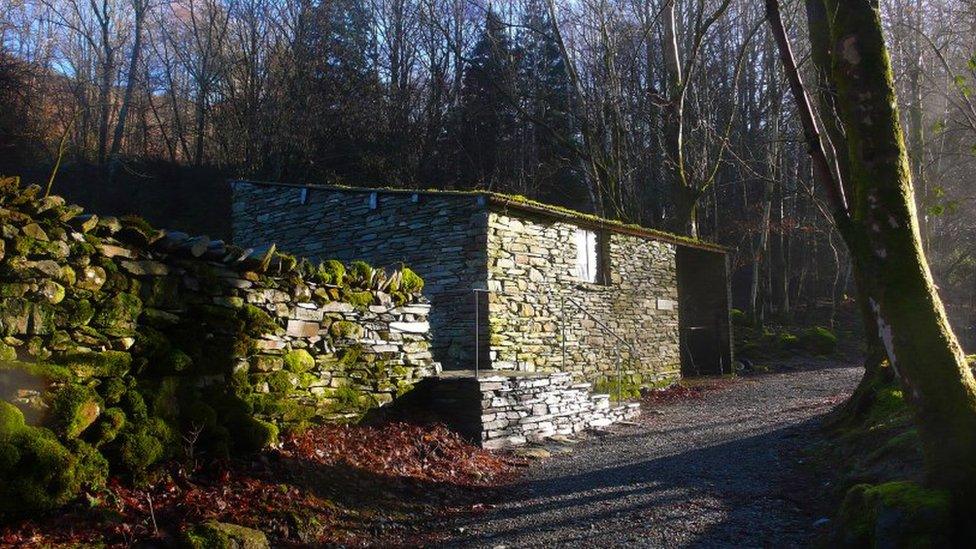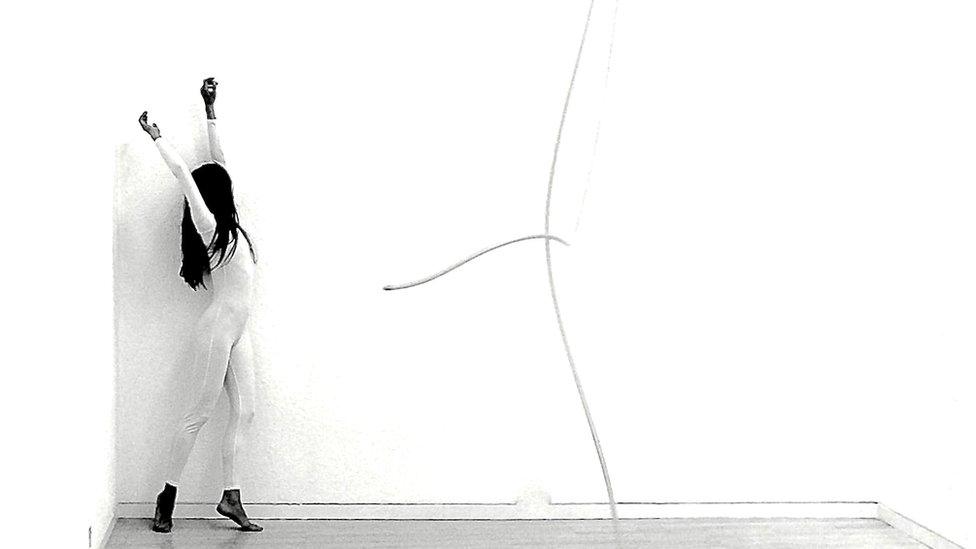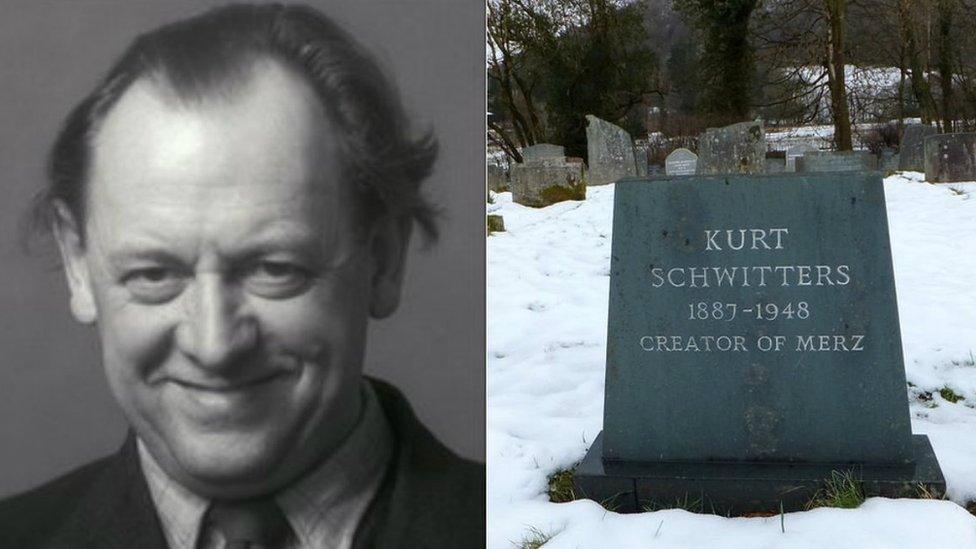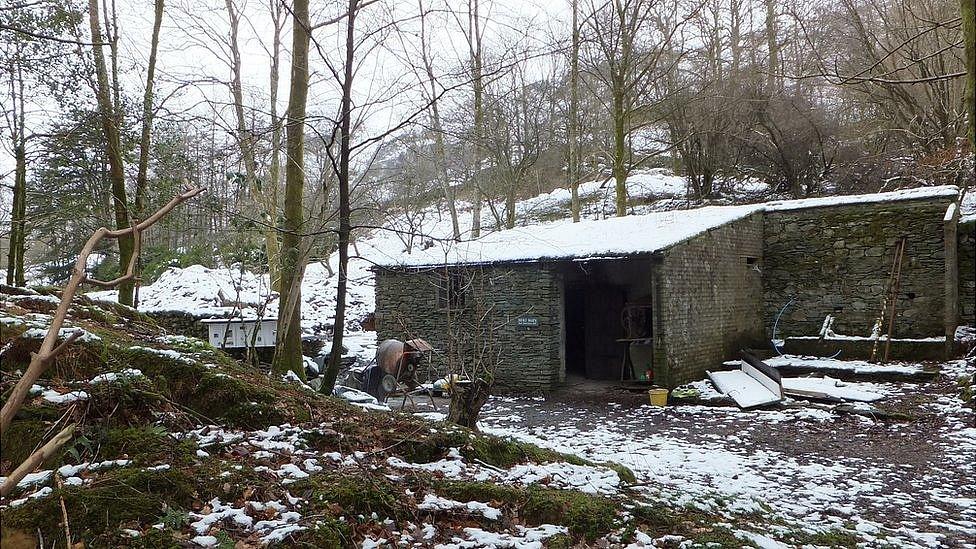Merz Barn exhibition unites two pioneering modern artists
- Published

Although Metzger (left) never met Schwitters he was influenced by him
Two artists who fled to the UK from Nazi Germany in the 1930s are to have their link commemorated in a special exhibition in the Lake District.
Two works by Gustav Metzger will be on show at the Merz Barn in Elterwater, the original site of a famous and unfinished work by Kurt Schwitters.
He settled there after being branded a "degenerate" artist by the Nazis.
Although Metzger, who arrived on the Kindertransport aged 13 in 1939, never met him, he was influenced by his art.
The exhibition establishes a "conversation between these two artists and their pioneering artistic practices".
Both men were affected by the experience of exile, crisis and loss, and both were influential in shaping the course of post-war British art.

Schwitters transformed the former gunpowder store into both a studio and an artwork in its own right
Schwitters spent his latter years in the Lake District, where he began to create what he regarded as his most important work, which was to turn the Merz Barn itself into an artwork using discarded objects.
One wall was completed and later moved to the Hatton Gallery in Newcastle.
Metzger, who died in 2017, was credited with inventing the concept of "auto-destructive art" and his philosophy on art and destruction inspired the guitar-smashing antics of The Who's Pete Townshend.
Two of his works, Rubbish Bag and Dancing Tubes, will be on show at the Merz Barn until 15 November.

Dancing Tubes, one of Metzger's last works, is one of the installations on display
Curator Lizzie Fisher said although Metzger and Schwitters never met, Metzger repeatedly acknowledged Schwitters as an important reference for him.
"I believe that he recognised that they shared the experience of exile and while both rejected German citizenship after the war, they nevertheless carried with them a sense of a shared, specifically German artistic and intellectual heritage", she said.
"Metzger first saw Schwitters' work in 1958 at a show in London, and Metzger's aesthetic theories owe a clear debt to Schwitters' interest in using what other people regarded as rubbish to make art."
Ian Hunter, director of Littoral Arts which owns the Cylinders Estate - the site of the Merz Barn, described the exhibition as a "way of opening up the rich and largely unexplored common ground between the two".

Follow BBC North East & Cumbria on Twitter, external, Facebook, external and Instagram, external. Send your story ideas to northeastandcumbria@bbc.co.uk, external.
Related topics
- Published7 January 2018

- Published30 January 2013
